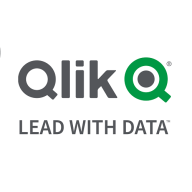

Teradata and Qlik Compose are key competitors in the data warehousing domain. Teradata appears to have an advantageous position, especially in large-scale data processing and performance, while Qlik Compose is noted for its intuitive handling of ETL tasks.
Features: Teradata exhibits remarkable scalability and performance due to its massively parallel processing architecture, handling large data volumes with ease. It provides comprehensive security features and compatibility with various analytical tools. Qlik Compose excels in data integration and automation, simplifying ETL processes and data warehouse generation. Its user-friendly design and automation capabilities make it a preferred choice for users looking for effective data warehousing solutions.
Room for Improvement: Teradata could address its high costs and improve the scalability and integration features for cloud environments. Users desire enhanced user-friendliness and big data ecosystem compatibility. Qlik Compose could enhance its ETL monitoring and scheduling functions, improve scalability, facilitate handling complex processes, and provide more thorough documentation to streamline user experience.
Ease of Deployment and Customer Service: Teradata offers extensive deployment options, including on-premises and hybrid cloud solutions, with well-regarded customer service and technical support. Qlik Compose provides flexibility in deployment through on-premises and cloud setups, but its customer service and technical guidance are areas where users identify room for enhancement in comparison to Teradata.
Pricing and ROI: Teradata is identified with premium pricing but is seen as cost-effective with its large-scale data handling capabilities. Despite high initial costs, its performance is valued by users. Qlik Compose, while also costly, presents more attractive pricing models for those seeking strong data integration without Teradata's overhead. Both solutions offer substantial returns on investment, although Teradata's pricing may not be feasible for smaller enterprises.
| Product | Market Share (%) |
|---|---|
| Teradata | 0.8% |
| Qlik Compose | 1.0% |
| Other | 98.2% |


| Company Size | Count |
|---|---|
| Small Business | 3 |
| Midsize Enterprise | 3 |
| Large Enterprise | 6 |
| Company Size | Count |
|---|---|
| Small Business | 26 |
| Midsize Enterprise | 12 |
| Large Enterprise | 49 |
Qlik Sense is a powerful business intelligence tool that offers a range of features to help organizations make faster and more informed decisions. Its primary use cases include operational and financial dashboards, self-service reporting, and centralized access to cross-functional reports. The solution is praised for its mobile platform, ease of use, data-sharing capabilities, and extensibility.
Qlik Sense has helped organizations improve data literacy, reduce time consumed in complex reports, and provide widely available MI to senior stakeholders. It also enables self-service analytics, improves data quality and governance, enhances collaboration, and reduces costs.
Teradata is a powerful tool for handling substantial data volumes with its parallel processing architecture, supporting both cloud and on-premise environments efficiently. It offers impressive capabilities for fast query processing, data integration, and real-time reporting, making it suitable for diverse industrial applications.
Known for its robust parallel processing capabilities, Teradata effectively manages large datasets and provides adaptable deployment across cloud and on-premise setups. It enhances performance and scalability with features like advanced query tuning, workload management, and strong security. Users appreciate its ease of use and automation features which support real-time data reporting. The optimizer and intelligent partitioning help improve query speed and efficiency, while multi-temperature data management optimizes data handling.
What are the key features of Teradata?In the finance, retail, and government sectors, Teradata is employed for data warehousing, business intelligence, and analytical processing. It handles vast datasets for activities like customer behavior modeling and enterprise data integration. Supporting efficient reporting and analytics, Teradata enhances data storage and processing, whether deployed on-premise or on cloud platforms.
We monitor all Data Integration reviews to prevent fraudulent reviews and keep review quality high. We do not post reviews by company employees or direct competitors. We validate each review for authenticity via cross-reference with LinkedIn, and personal follow-up with the reviewer when necessary.